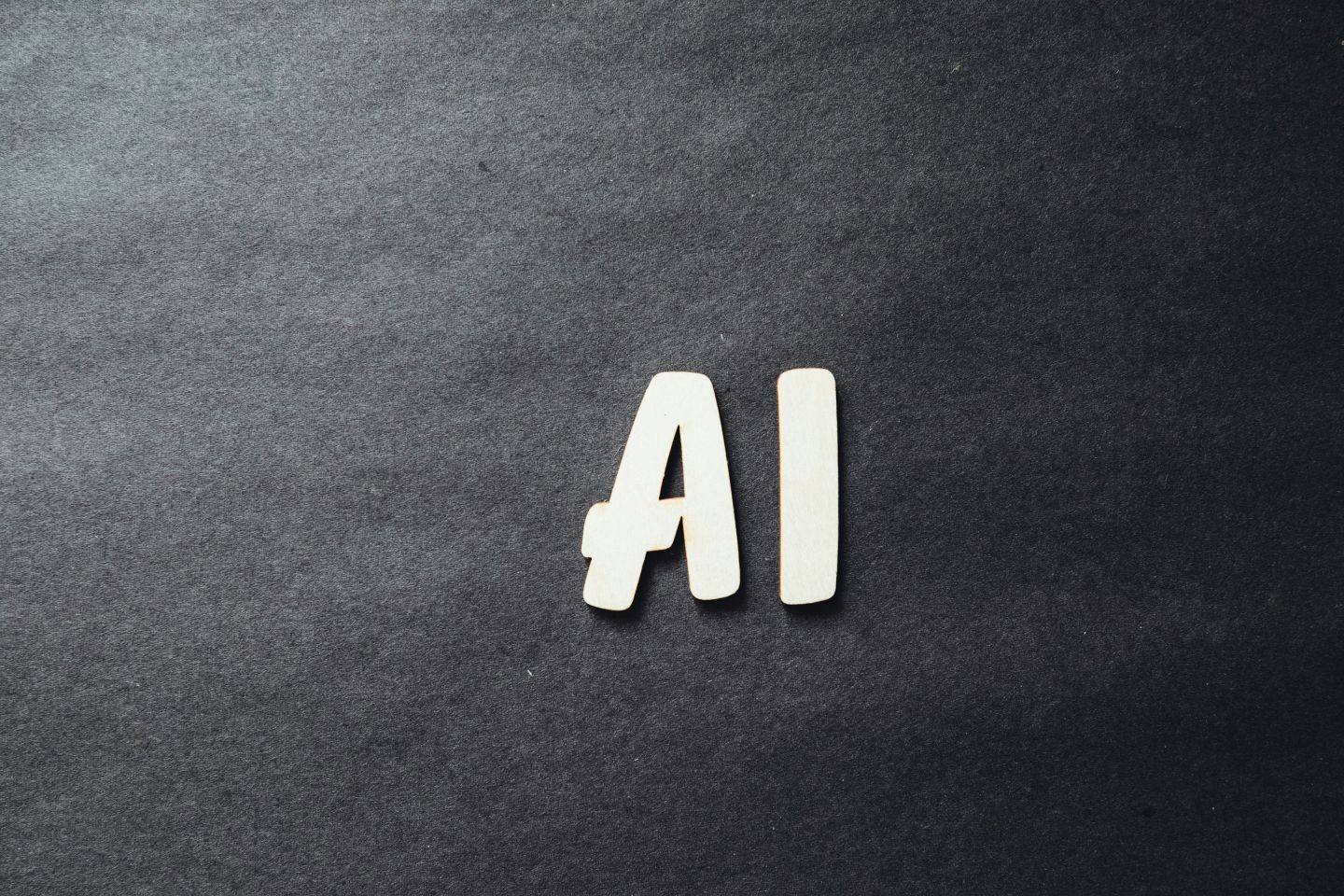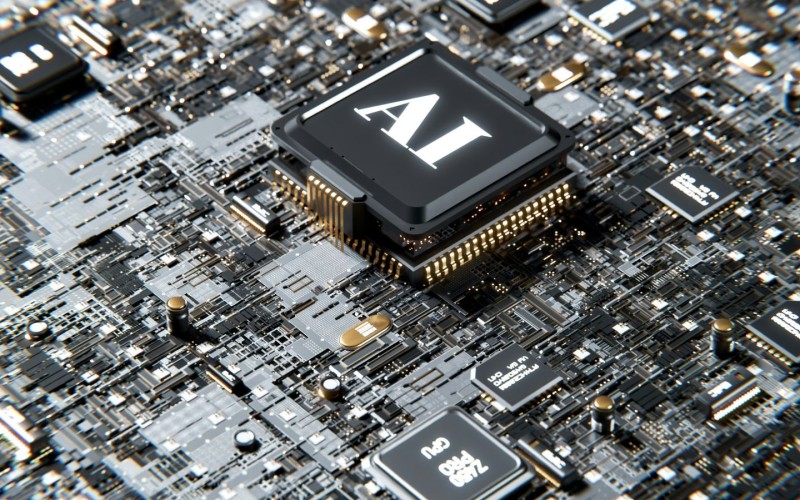Im vergangenen Jahr war die Nutzung künstlicher Intelligenz (KI) in verschiedenen Bereichen von Wirtschaft und Gesellschaft eine der am meist diskutierten Veränderungen in unserer Arbeitswelt und eine der drängendsten Fragen dabei ist, wie wir die Auswirkungen von KI auf Führung in Zukunft angehen sollten.

Die Auswirkungen auf Leadership können gar nicht hoch genug eingeschätzt werden. Traditionelle Führungsparadigmen werden in Frage gestellt, und es sind neue Ansätze erforderlich, um das Potenzial der KI zu nutzen und gleichzeitig ihre Komplexität zu bewältigen.
Dieser Artikel befasst sich mit der Frage, wie Führungskräfte ihren Führungsstil weiterentwickeln können, um KI effektiv zu nutzen und sich Wettbewerbsvorteile zu verschaffen.
Die besten Führungskräfte sind nicht durch KI ersetzbar
Beginnen wir mit der neuesten Forschung. Ein im Januar 2024 in der Harvard Business Review erschienener Artikel mit dem Titel "The Best Leaders Can't be Replaced by AI" (Die besten Führungskräfte können nicht durch KI ersetzt werden) reflektiert eine kürzlich durchgeführte Umfrage unter mehr als 600 Mitarbeitern aus verschiedenen Branchen.
Demnach haben die Mitarbeiter in bestimmten Führungsbereichen bereits mehr Vertrauen in KI als in ihre menschlichen Chefs. Die Autoren wiesen auf drei einzigartig menschliche Fähigkeiten hin, auf deren Verbesserung sich Führungskräfte konzentrieren sollten, insbesondere wenn KI im Management eine größere Rolle spielen wird. Diese sind
- Bewusstsein,
- Mitgefühl und
- Weisheit.
Dies sind die menschlichsten Eigenschaften, die man sich vorstellen kann, und es sind Themen, die ich in meinem 2020 erschienenen Buch Be More Human - Re-thinking the Rules of High Performance Teamwork (Mehr Menschlichkeit - Die Regeln der Hochleistungs-Teamarbeit neu überdenken) behandle. Im Großen und Ganzen geht es dabei um die Frage, wie wir das optimieren können, was ich als "menschliches Tier" bezeichne.
Wie der Neurowissenschaftler Antonio Damasio es ausdrückt, sind wir keine denkenden Wesen, die fühlen, sondern fühlende Wesen, die denken. Diese Sichtweise zwingt uns dazu, die emotionale, menschliche Seite unseres Handelns zu optimieren.
Einfach ausgedrückt: Wir sind keine Maschinen, und wir müssen unsere Stärken ausspielen, indem wir unser Verständnis dafür vertiefen, wie wir als Menschen ticken. Wenn wir dies tun, optimieren wir unsere Leistung und die der Menschen um uns herum. Das sind Fähigkeiten, die offen gesagt in unserem Bildungssystem und folglich auch am Arbeitsplatz fehlen. Das ändert sich zwar, aber es ist noch viel zu tun.
Wenden wir uns nun der Praxis zu. Was können Sie als Führungskraft tun, um sich zu optimieren und sich in die bestmögliche Position zu bringen, um an der Spitze der KI-Welle zu stehen? Einige Ideen, mit denen Sie experimentieren können:
Umfassende datengestützte Entscheidungsfindung
KI bietet Führungskräften einen beispiellosen Zugang zu riesigen Datenmengen und ermöglicht datengestützte Entscheidungsprozesse. Im Gegensatz zu herkömmlichen Methoden, die sich oft auf Intuition und frühere Erfahrungen stützen, bietet KI Erkenntnisse, die auf einer umfassenden Analyse von Datenmustern basieren.
Führungskräfte haben die große Chance, diesen Wandel zu nutzen, indem sie eine Kultur fördern, die datengestützte Entscheidungsfindung schätzt. Dies erfordert eine Kultur, die vorrangig in die notwendige Infrastruktur, Tools und Schulungen investiert, damit die Teams die Daten effektiv nutzen können.
Ein Lieblingsbeispiel von mir ist ein Versicherungsunternehmen, das die datengesteuerte Entscheidungsfindung in den Mittelpunkt seiner Strategie gestellt hat: Es führte durchschnittlich 60 Experimente pro Woche durch - Ideen konnten von überall her kommen. Das Unternehmen hat ein unglaubliches Wachstum erzielt, indem es sich durch Experimente einen Weg in die Zukunft gebahnt hat und Daten zur Entscheidungsfindung genutzt hat.
Anpassungsfähigkeit und Agilität kultivieren
Das Tempo des technologischen Wandels im Zeitalter der KI begünstigt Führungskräfte, die anpassungsfähig und agil sind. Um erfolgreich zu sein, müssen Führungskräfte eine Kultur der Innovation und des Experimentierens fördern, in der Scheitern als Chance zum Lernen und nicht als Rückschlag gesehen wird. Dies erfordert Offenheit für Veränderungen und die Bereitschaft, konventionelles Denken in Frage zu stellen.
Einer meiner Lieblingssprüche lautet, dass der einzige echte Wettbewerbsvorteil eines Unternehmens die Geschwindigkeit ist, mit der es lernt. Dieser Ansatz hat den Chip-Giganten Nvidia begünstigt, ein Unternehmen, das ich für mein neuestes Buch "The Big Bold Mindset" untersucht habe. Jensen Huangs Leitspruch besagt "Wir sind immer nur 30 Tage davon entfernt, pleite zu gehen". Das ist eine Denkweise, die alle Beteiligten wach hält, um das Risiko der Selbstzufriedenheit zu vermeiden und die Agilität zu fördern, mit der man sich ständig anpassen kann.
Förderung der Zusammenarbeit zwischen Mensch und KI
KI hat zwar das Potenzial, viele Aufgaben zu automatisieren, kann aber das menschliche Element der Führung nicht ersetzen. Effektive Führung im Zeitalter der KI bedeutet, die Technologie zu nutzen, um die menschlichen Fähigkeiten zu erweitern, anstatt sie zu ersetzen. Führungskräfte müssen die Zusammenarbeit zwischen Menschen und KI-Systemen fördern und Synergien schaffen, die Produktivität und Kreativität steigern. Dazu müssen sie die Stärken und Grenzen von Menschen und KI verstehen und Arbeitsabläufe so gestalten, dass sie die jeweiligen Stärken nutzen.
Führen mit ethischen Überlegungen
Mit der zunehmenden Integration von KI in Entscheidungsprozesse werden ethische Überlegungen immer wichtiger. Führungskräfte müssen sicherstellen, dass KI-Systeme so konzipiert und eingesetzt werden, dass ethische Grundsätze eingehalten und die Menschenrechte respektiert werden. Dazu gehört die Auseinandersetzung mit Themen wie Vorurteilen in KI-Algorithmen, Transparenz bei der Entscheidungsfindung und Rechenschaftspflicht für KI-gesteuerte Ergebnisse.
Führungskräfte müssen mit gutem Beispiel vorangehen, sich zu ethischem Verhalten verpflichten und eine Kultur der ethischen Verantwortung im gesamten Unternehmen fördern.
Förderung der emotionalen Intelligenz
Während KI Aufgaben wie Datenanalyse und Mustererkennung hervorragend bewältigt, mangelt es ihr an emotionaler Intelligenz - der Fähigkeit, menschliche Emotionen zu verstehen und sich in sie einzufühlen. Effektive Führung im Zeitalter der KI erfordert die Förderung der emotionalen Intelligenz von Führungskräften und Teammitgliedern. Dazu gehört die Förderung von Fähigkeiten wie Empathie, intensives Zuhören und Konfliktlösung, die für den Aufbau starker Beziehungen und die Förderung der Zusammenarbeit unerlässlich sind.
Führungskräfte müssen die Bedeutung der emotionalen Intelligenz für die Teamleistung erkennen und ihrer Entwicklung Vorrang einräumen.
Neudefinition von Führungsrollen
Die Integration von KI in die Belegschaft erfordert eine Neudefinition der traditionellen Führungsrollen. Führungskräfte, die erkennen, wie wichtig es ist, dafür zu sorgen, dass die Entscheidungsbefugnis dezentralisiert und unter den Teammitgliedern und KI-Systemen aufgeteilt wird, werden mit größerer Wahrscheinlichkeit agile, sich schneller entwickelnde Unternehmen haben.
Dies erfordert eine Verlagerung von Top-down-Managementstrukturen hin zu kollaborativen und integrativen Ansätzen. Es geht um Führungskräfte, die ihre Mitarbeiter befähigen, ihre Arbeit selbst in die Hand zu nehmen, und ihnen die Unterstützung und die Ressourcen zur Verfügung stellen, die sie brauchen, um in einem sich schnell verändernden Umfeld erfolgreich zu sein. Eine klare Zielsetzung und ein klarer Wertekanon sind die Grundlage für die Gestaltung einer Kultur, in der die Mitarbeiter in die Lage versetzt werden, ihre eigenen Entscheidungen zu treffen.
Investitionen in kontinuierliches Lernen
Im Zeitalter der künstlichen Intelligenz ist Lernen nicht mehr ein einmaliges Ereignis, sondern ein kontinuierlicher Prozess. Führungskräfte müssen in kontinuierliches Lernen und Entwicklung investieren, um mit den technologischen Fortschritten und den sich entwickelnden Branchentrends Schritt zu halten. Dazu gehört, dass sie sich über die neuesten Entwicklungen in der KI und verwandten Bereichen auf dem Laufenden halten und sich bei Bedarf neue Fähigkeiten und Kompetenzen aneignen.
Führungskräfte, die mit gutem Beispiel vorangehen und eine Kultur schaffen, die kontinuierliches Wachstum und Entwicklung schätzt und unterstützt, werden mit größerer Wahrscheinlichkeit erfolgreich sein.

Ihre Aufgaben
Die KI wird nicht verschwinden. Sie wird die Unternehmenslandschaft weiter verändern, und Führungskräfte müssen sich weiterentwickeln, um die Herausforderungen und Chancen des digitalen Zeitalters zu meistern. Anstatt diesen Artikel nur passiv zu lesen und darüber nachzudenken, lade ich Sie ein, eine konkrete Maßnahme zu ergreifen. Hier sind drei Ideen, aus denen Sie wählen können:
- Investieren Sie in die Entwicklung Ihrer menschlichen Fähigkeiten im Bereich der emotionalen Intelligenz und des Verständnisses für sich selbst und andere. Das ist wahrscheinlich die wirkungsvollste Investition, die Sie jemals tätigen können.
- Stellen Sie sich einen einfachen Prozess vor, mit dem Sie Ihr Unternehmen dazu bringen, mehr mit verschiedenen Ideen zu experimentieren. Wie könnte dieser Prozess aussehen? Führen Sie heute ein Experiment durch und sehen Sie, was Sie lernen. Dann iterieren Sie.
- Finden Sie eine Möglichkeit, wie Sie KI zur Unterstützung eines aktuellen Geschäftsprozesses einsetzen können. Nehmen Sie sich etwas Zeit, um ein paar Ideen zu recherchieren, und wählen Sie eine aus, mit der Sie experimentieren möchten. Spielen Sie damit (so lernen wir am besten) und sehen Sie, was Sie herausfinden.
Leadership und KI - Vortrag von Caspar Craven
Sind Ihr Team und Ihre Organisation auf der Suche nach frischem Denken und Inspiration zu diesem Thema? Caspar Craven spricht mit seinem Vortrag genau dies an:
- Navigieren durch die Zukunft: Nutzbarmachung menschlicher Fähigkeiten in einer Welt der KI
- Wird KI unsere Lebensgrundlagen dezimieren? Wie navigieren wir durch eine unsichere und sich verändernde Welt?
In diesem aufmunternden und zum Nachdenken anregenden Vortrag spricht Caspar über die Denkweise, die wir brauchen, um aus den Aspekten, die uns zu Menschen machen, Kapital zu schlagen, damit wir KI zu unserem Vorteil nutzen können.
Er teilt Ideen zur grundlegenden Denkweise, die erforderlich ist, um eine scheinbar unmögliche Herausforderung zu bewältigen, und gibt Beispiele dafür, wie verschiedene Organisationen KI nutzen, um erfolgreich zu sein.
